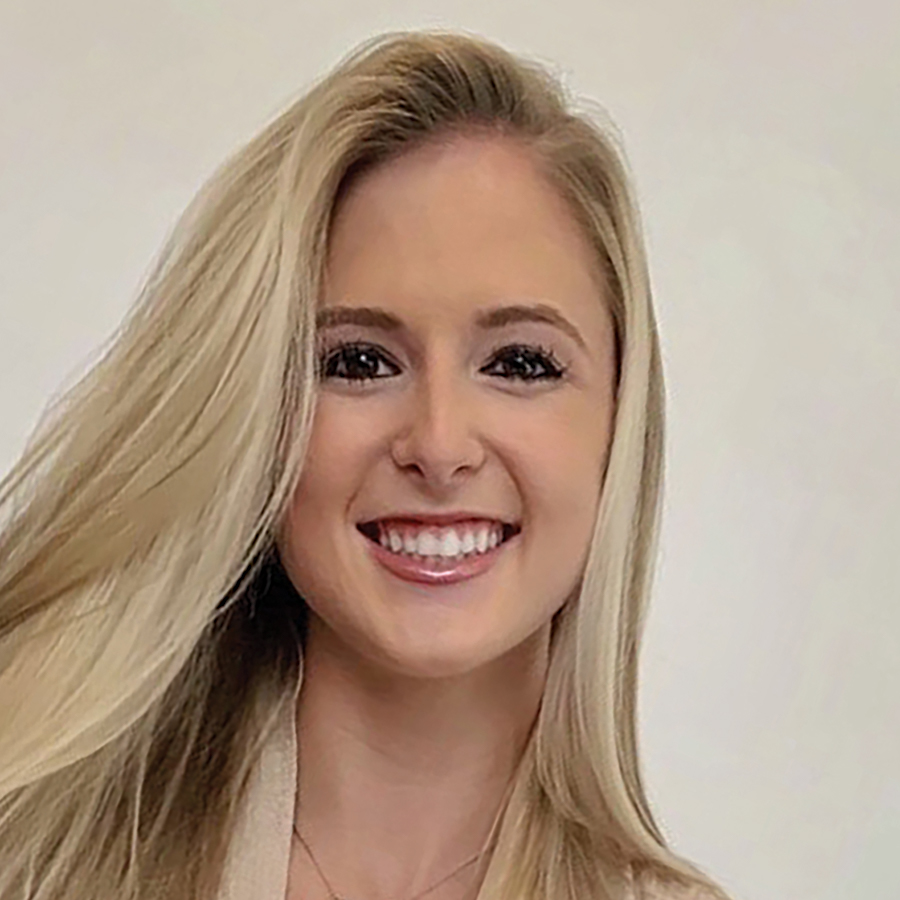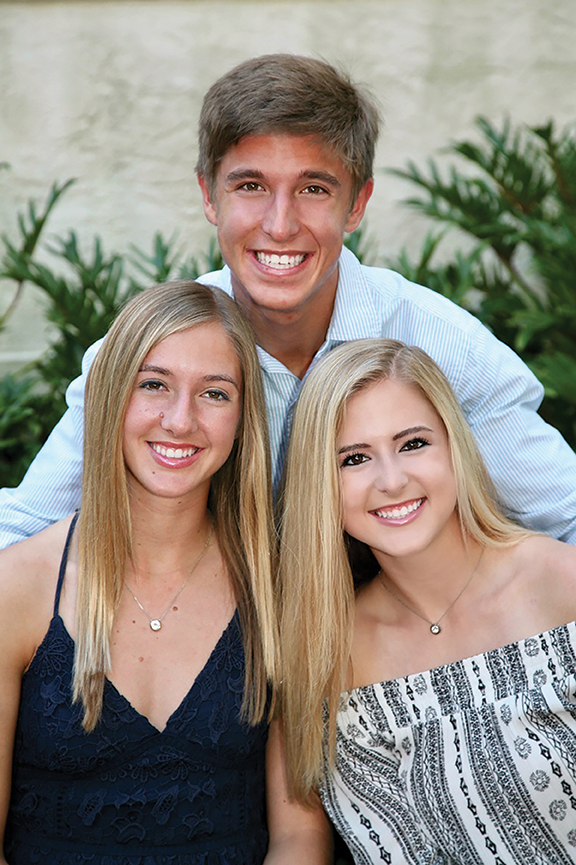Code switched
FSU senior combines passions for biology, Spanish to study the science of language

Triplet Alexis Kidd was learning Spanish in high school when she noticed a big difference in how easy learning a new language was for her and how challenging the experience of learning that same language was for her brother.
Kidd had always been fascinated by the brain’s complexities, the unknowns left to be discovered, and differences between people, even those biologically related, but this idea was something new. She began studying how people process language and how multilingualism changes brain structure, even penning her International Baccalaureate program essay on the topic.
For a while, language receded to the background. Kidd enrolled at Florida State and turned her studies to biological science to create the foundation for a career in veterinary medicine — she plans to specialize in the growing field of veterinary neurology. But the linguistic notion remained.
“I initially pursued Spanish just because I wanted to speak another language, but I fell in love with the subject,” said Kidd, now a senior double-majoring in biological science and Spanish.
During her first year at FSU, Kidd took an upper-level Spanish class taught by modern languages and linguistics graduate assistant Amy Bustin. It was there she had the first inkling she might be able to combine her interest in neurology and her passion for language.
Bustin studies second-language acquisition, bilingualism and psycholinguistics, or the ways in which language is represented and processed in the brain. The field of psycholinguistics includes codeswitching, the cognitive phenomenon that happens when a speaker switches among two or more languages in a single utterance.
“Because of my biology background, I was very interested in learning more about the neurolinguistics of the phenomenon,” Kidd said.
Many people are familiar with the idea of “Spanglish,” which is often perceived negatively; however, linguists recognize it as a natural and emergent process practiced by highly proficient bilinguals. Bustin’s research examines morphosyntactic boundaries, or where in a sentence or phrase is it considered permissible or impermissible to codeswitch, along with the production and perception of codeswitching.
“Codeswitching is different from borrowing, meaning when a bilingual person switches out or incorporates words from another language into their dominant language, because of grammatical constraints that occur while codeswitching,” Kidd said. “A common belief is that bilinguals must be highly proficient in both languages to codeswitch because one must understand grammatical constraints in both.

Intrigued, Kidd applied to be a research assistant through the Undergraduate Research Opportunity Program in order to help with Bustin’s work on codeswitching.
“Alexis was instrumental in designing the stimuli used in the study and in recruiting participants,” Bustin said. “She went to different student groups across campus to help create a database of individuals that qualified for the study.”
As she researched further, Kidd discovered more about how multilingualism affects brain structures, and decided to pursue an honors thesis on codeswitching and how it can affect the bilingual brain.
“While codeswitching is mainly studied from a sociolinguistic perspective, I am proposing to study this phenomenon from a neurolinguistic perspective and identify possible brain structures activated by codeswitching,” Kidd said.
With her research, Kidd hopes to gain more knowledge about how codeswitching specifically affects certain brain structures and cognitive processes, and possibly lead to a better understanding of how people process languages.
“The idea is that bilingual individuals who codeswitch may have an even greater cognitive benefit than those who do not,” Kidd said. “This is a new perspective on codeswitching that may lead to a deeper understanding of its cognitive benefits.”
Professor of Spanish and linguistics and associate chair for undergraduate studies Gretchen Sunderman, Kidd’s thesis director, said Kidd’s background in both Spanish and biological science gave her a unique perspective on language. The two met through Bustin, one of professor Sunderman’s doctoral students.
“Alexis is a bright, motivated and curious student. It was a joy to work with her on her thesis and see her make connections between her two different fields of study,” Sunderman said.
“It was a joy to work with [Alexis] on her thesis and see her make connections between her two different fields of study.”
— Gretchen Sunderman,
Professor of Spanish and Linguistics
While researching, Kidd found interesting information that may link bilingualism to the prevention of onset memory disorders, such as Alzheimer’s disease. She presented her thesis proposal on codeswitching to the board of professors in November and plans to spend the winter observing positron emission tomography, or PET, scans and functional MRIs to study how the cognitive functioning of code-switching impacts brain structure.
“If we can obtain more knowledge about this correlation, there is a possibility we may develop newer methods to battle and help prolong onset of memory diseases in high-risk individuals,” Kidd said.
Rebecca McCandless is pursuing a bachelor’s in English with a concentration in Creative Writing, and plans to graduate in May 2021.
